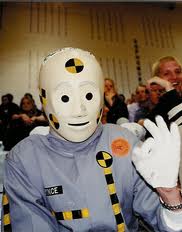
Do you ever keep track of what these experts have predicted? How often do you check to see if the weather expert in your town is right about the weather? Predicting the weather is hard enough, even with super computers and years of models used to predict what is likely to happen. Still we all know that, as often as not, the weather is not quite or not at all what was predicted. It's still about a 50/50 shot on those 10 day forecasts.
And what about the experts who think it's a good idea to do this or that? Invade Syria? Invade Iran? Invest in Gold? Buy mining stocks? Start a bottled water company? Stockpile food and weapons for armageddon?
Remember Y2K? New Years day, January 1, 2000 was supposed to be the disaster to end all disasters. Mass chaos would erupt all over the world as the worlds computers ran out of dates and began to shut down all at once. Pandimoneum would reign. It was time to move to the mountains and start farming. Y2K came and went with little fanfare and even fewer computer problems. The warnings did not come to pass, but many "experts" made tons of money off of the resulting preparations. Millions of dollars worth of books, supplies, guns, land, and computer programming services were sold as a result of the near panic that erupted from around 1994 until new years day, 2000.
Most of the time when something really big happens, something disastrous, the experts are also caught totally off guard. Take the Christmas Day tsunami of 2004 as an example. This massive wave killed 250,000 or more, and no one saw that coming. What about September 11, 2001. The US already had billions of dollars worth of security and intelligence services monitoring terrorististic threats, yet the terrorists who brought down the world trade center towers did it with our planes, trained for it in our flight schools and lived in the US with expired visas, right under our very noses.
What about the housing collapse of 2008? Did you hear any real estate experts predicting that one?
The core of "expert" motives is often money. None of the major housing experts wanted to admit that housing could collapse, right up to the day that it did. Ditto for the banking sector. Everyone involved was more willing to be deceived into believing a lie, than to objectively determine that the system was dangerously flawed with overpriced homes.
Deception comes in two forms. Deliberate deception, when someone wants to deceive you, usually to get your money, or accidental deception, when we believe something is true because that is what we think sounds right to us, or we would prefer to believe a lie instead of the truth, just because it fits better with what we assume could be the "truth". But the real truth does not care what we think or feel.
The fact is that none of us is nearly as smart as we think we are. Myself included. In fact, after living for 57 years, and making as many mistakes as most folks can make, I've come to the conclusion that I too, am dumb as a rock. But the good news is, once I realized this, I became an expert at realizing how much I needed to keep my own opinions and assumptions in check. Trust but verify.
I realized the key to being a "real" expert, who is right most of the time, is to always keep in mind that I do not know anything. This helps me be more humble and mindful that I could be wrong. In so doing, I find that I avoid jumping to conclusions or assuming that my own bloated opinions are fact.
I'm also better able to avoid listening to others who have bloated opinions of themselves. The key to being a real expert is to realize that we are not as smart as we think we are, and neither is anyone else that we are listening to.
Being willing to seek out the real truth, while being willing to lay aside our personal opinions and assumptions is the key to being a real, authentic
